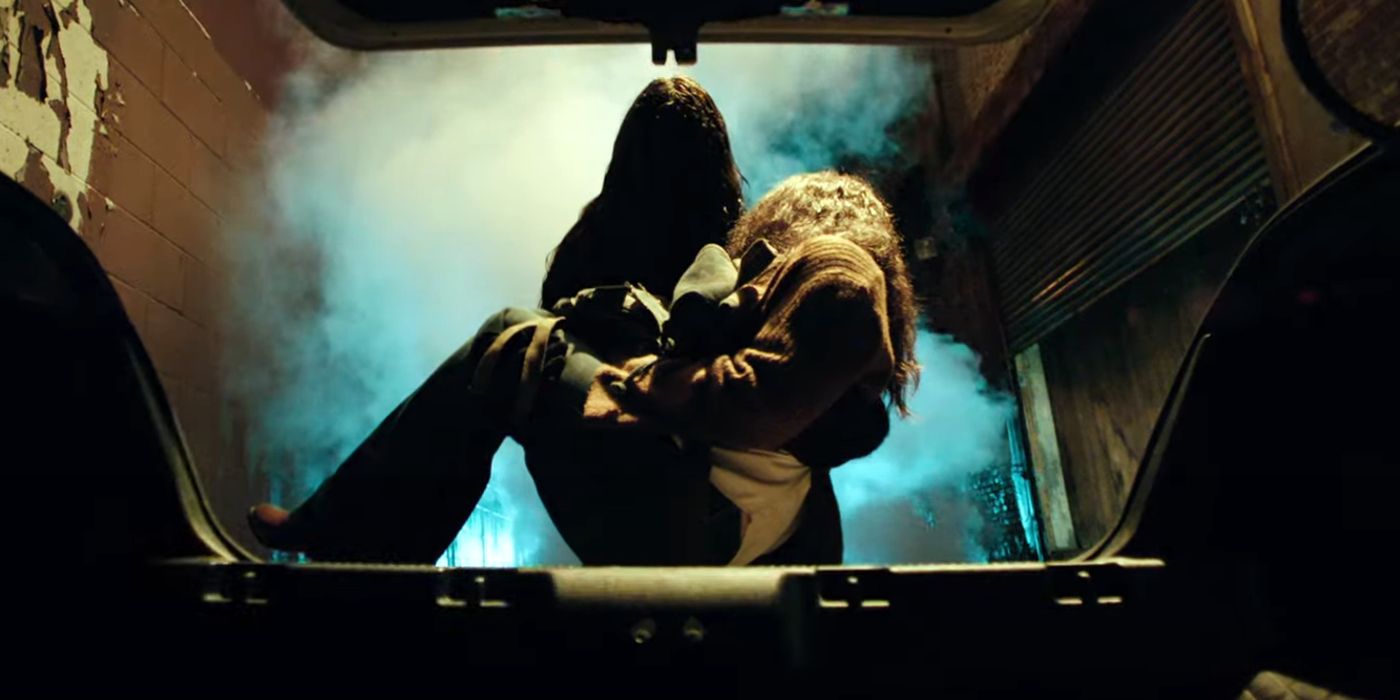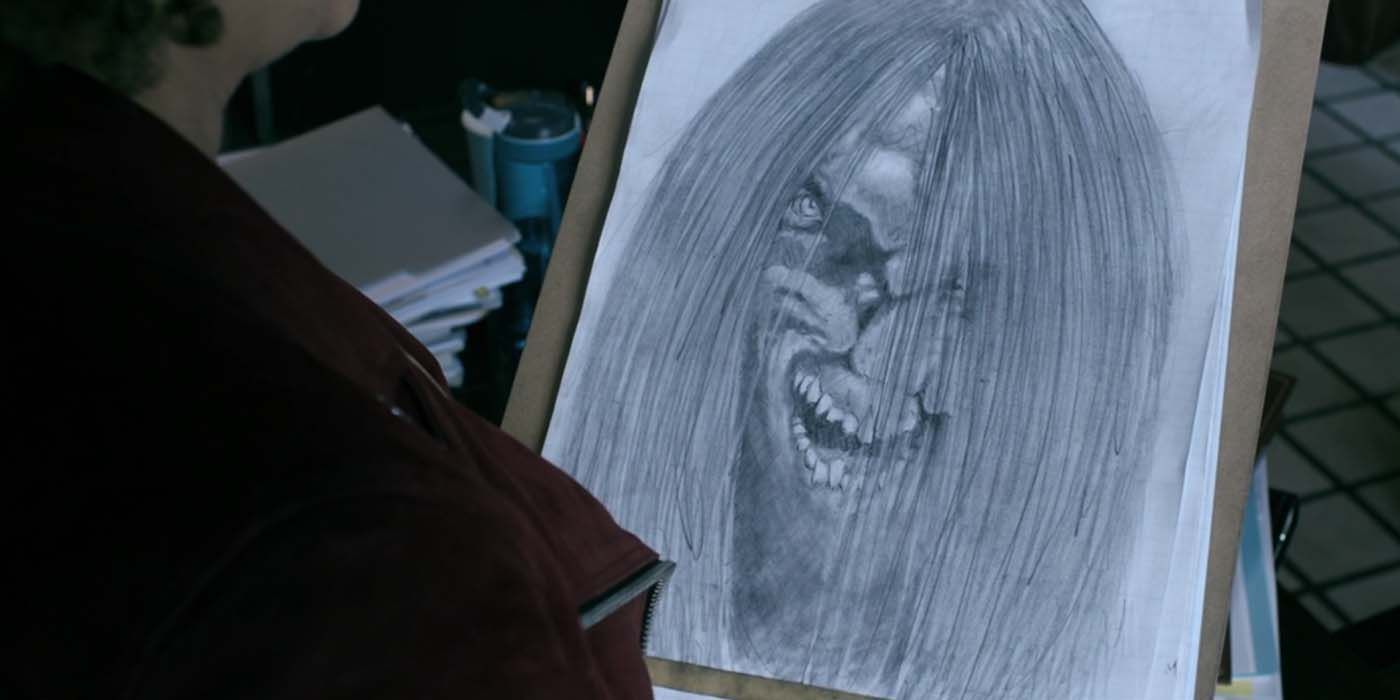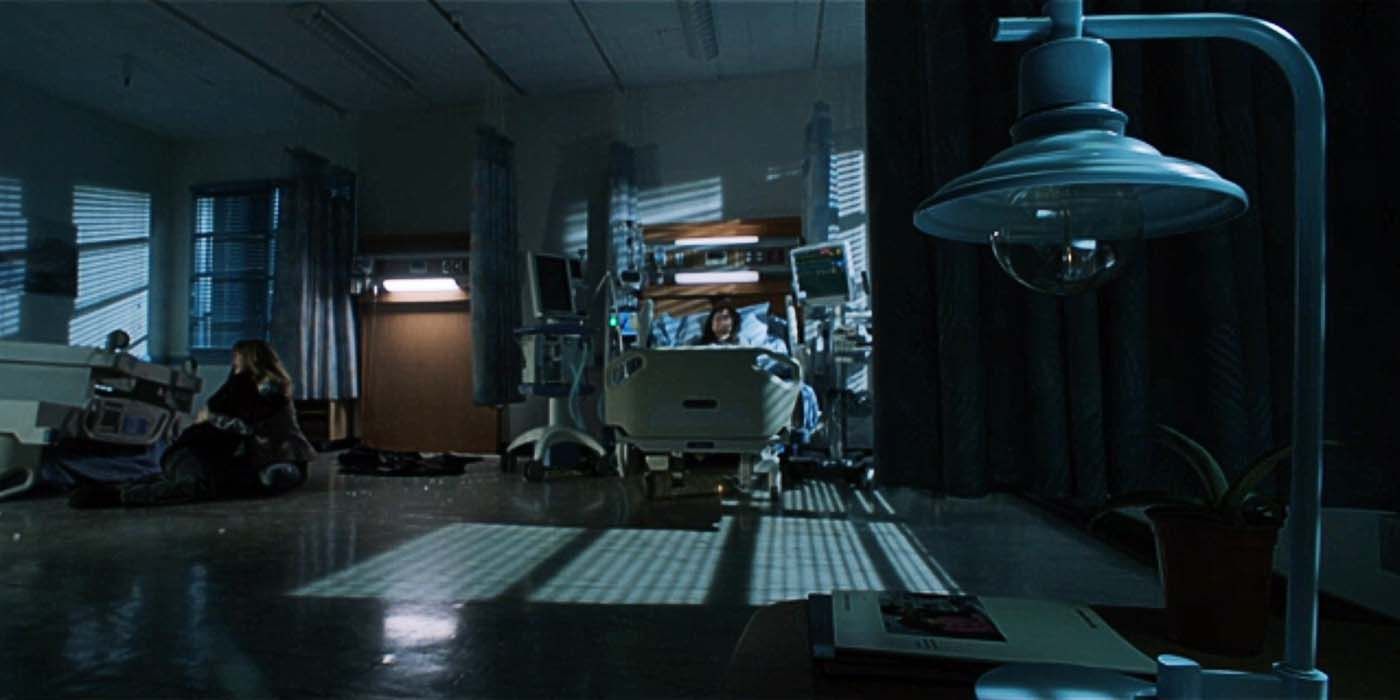Warning: Major SPOILERS for Malignant
James Wan's Malignant ends on a semi-psychological, semi-supernatural twist ending, revealing the true identity of both Madison, the lead played by Annabelle Wallis, and the mysterious "Gabriel" killer, the primary source of Malignant's horror. Perhaps the most influential and commercially successful horror director of the 21st century, Wan takes a more cerebral approach to terror in Malignant after briefly departing from the genre for a few years to contribute his twisted vision to the Fast and Furious and Aquaman franchises.
Fulfilling Wan's eagerly anticipated return to horror, Malignant doesn't hold back in terms of violence and gore, as the story opens with Madison, a pregnant woman haunted by surreal visions of her past, being physically abused by her partner Derek for, what he misperceives to be, her past pregnancy failures. Following an altercation between Madison and Derek involving the latter bashing the former's head into a wall, a dark, sinister force begins performing a series of murders, with its first victim being Derek. Inexplicably, Madison is capable of witnessing these murders in a lucid dreaming state that seems to collapse both time and space between Madison and the killer, linking the two in a seemingly otherworldly fashion.
Entering the story's third act, it's revealed that the killer, named "Gabriel," is a parasitic twin, a sentient form of a germ cell tumor called a teratoma, that's sharing and increasingly commandeering Madison's body. Using Madison's body as a vehicle to pull off its killing spree, Gabriel eventually pursues Madison's adoptive sister Sydney (Maddie Hasson) in a jealous fit, with the intent of killing Sydney and claiming Madison all for himself. Though the story does an effective enough job of explaining its twist ending -- that Madison and Gabriel are, in a physical sense, the same person -- what's perhaps missed by audiences is how Malignant's "parasitic twin" ending is inspired by a real-life condition.
What Is Gabriel? Parasitic Twins Explained
Midway through Malignant, Madison reveals that she was adopted, making her and her sister Sydney not blood-related. Shortly thereafter, Madison rediscovers "Gabriel," a tormenting voice in Madison's head that her adoptive family assumed to be just a childish, possibly supernatural, imaginary friend. Of course, as the ending of Malignant reveals, Gabriel is actually a parasitic twin, a separate sibling identity that embryonically attached to the back of Madison's skull in the womb. Grotesquely depicted as a malformed alien-like head-and-torso, Gabriel is surgically removed from Madison's head, with exception to his brain which gets dismissively fused with Madison's brain. Long dormant, Gabriel's psyche violently awakens after Madison's partner bashes her head, kickstarting the story's events.
In reality, a parasitic twin teratoma is an identical twin that ceases development during gestation, yet physically sustains itself by attaching to the fully developed twin, henceforth referred to as the "dominant twin." Parasitic twins typically differ from conjoined twins (colloquially known as Siamese twins) in that parasitic twins lack a developed brain or identity, whereas conjoined twins entail two separate identities sharing the same body parts. With that in mind, Malignant's Gabriel is a sort of fantastical cross version between a parasitic and conjoined twin.
Is Malignant's Gabriel Possible In The Real World?
Parasitic twins, like conjoined twins (and another related condition: vanishing twins), do occur in real life; although parasitic twins typically take the appearance of a severe tumor on the dominant twin. Occurring in fewer than one in 1,000,000 births, parasitic twins lack enough documentation for them to be fully understood, perhaps explaining the creative liberties Wan is able to take with the parasitic twin concept to create his movie villain. Unlike Wan's parasitic twin, however, real parasitic twins lack any intellectual independence or the cognitive capacity required to construct an identity or contemplate motives -- let alone the complex, sinister motives of Gabriel.
It goes without saying but Gabriel's ability to override Madison's psyche with his own, not to mention his largely unexplained ability to telekinetically influence electrical appliances, is pure fantasy. While the third act reveals largely dismiss the supernatural side of Gabriel as a psychological phenomenon on Madison's part, somewhat rooting his existence within scientific plausibility, there remains a spooky magic to Gabriel that audiences can simply chalk up to James Wan having fun again with the horror genre.
How Madison Took Control Of Gabriel & Her Brain
One of the plotlines Malignant handles fairly well is the nuanced sibling dynamics that lead towards the violent climactic showdown between Madison, her parasitic twin Gabriel, and her adoptive sister Sydney. Dismissively "swept under the rug," so to speak, Gabriel accumulates a great deal of rage and resentment towards Sydney, who believes herself to Madison's true sibling. Feeling like he missed out on the family life granted to Madison, Gabriel attempts to claim what was (in his mind) stolen from him and given to Madison by killing Sydney.
Though meek and timid throughout the majority of Malignant, Madison accumulates within herself a seething sense of indignant anger at having to live at the behest of others (e.g., her abusive partner, the researchers from her childhood, etc.), and this rage manifests when her parasitic twin, assuming possession of her body, threatens to kill Sydney at the movie's end. After Gabriel impales Detective Shaw (George Young) with his murder weapon, leaving Shaw in an ambiguously dead-or-alive state, Madison is trapped in a mental prison, watching Gabriel commit these violent acts. However, when Gabriel reveals that he's responsible for Madison's miscarriages, as he used their fetal tissue to reconstruct his physical presence, Madison retakes control of her body, imprisoning Gabriel in the mental prison instead, as she uses her newfound strength to save her sister.
Malignant's Final Shot Sets Up Gabriel's Return In A Sequel
Choosing Sydney over Gabriel as her "true" sibling, Madison finally enjoys a moment of peaceful relief, as the story comes to a close. However, despite her making such a final, conclusive decision, Malignant ends with a little bit of sequel bait as, after panning across the story's final destination, the camera lingers on a lamp that suggestively tremors with an electric whirring noise. While Madison may have regained control over body, imprisoning Gabriel in her mental palace, Wan's Malignant reminds the audience with the whirring lamp that this doesn't mean Gabriel is dead, that his return -- potentially in the form of a movie sequel -- is still possible.





